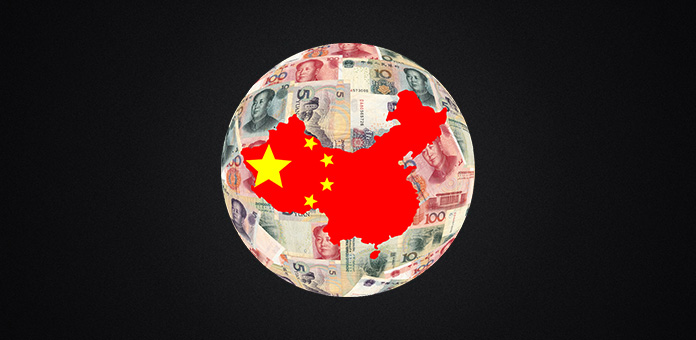
On October 1 of this year, the yuan was added to the IMF’s special drawing rights (SDR) basket of currencies. 1 This allowed the Chinese to triumphantly move a major piece on their financial chessboard. Serving as a significant step in China’s efforts to make the yuan a primary global currency, this action by the IMF changes certain important international economic rules. The addition of the yuan to the SDR basket positions China’s currency alongside the US dollar, the euro, the yen, and the British pound.
China Rising
The glee of the Chinese was evident when the People’s Bank of China provided a statement to Reuters that boasted, “The inclusion into the SDR is a milestone in the internationalization of the renminbi, and is an affirmation of the success of China’s economic development and results of the reform and opening up of the financial sector.”
The move had been telegraphed last year, and it was noted that this was the first such addition since the newly created euro was placed in the currency pool in 1999. While many market observers such as Harry Lu and Jerry Ping discounted this action’s significance, it is an undeniably crucial move to China and its central bank.
Recognizing the Chinese Transformation
The world and global financial markets have watched in something of amazement over the past 35 years of China’s transformation. However, the Chinese themselves have been executing a very long-term strategic plan to ensure China’s place among the world’s elite.
The many steps and ultimate goals of this plan is the subject of constant discussion among China-watchers and other observers. With its efforts to obfuscate its gold buying and position as one example, the Chinese work hard to not telegraph their financial intentions any sooner than they have to. Likewise, the establishment of its own gold exchange has many questioning the ultimate role of this new financial market.
Weighing the Current and Long-Term Impact
As the world faces increasing challenges related to fiat paper currency, the idea of gold-backed Chinese currency is of increasing interest. Some observers, such as Gordon Chang, believes the Chinese have the elimination of the U.S. dollar as an international currency as a primary goal. 2
How China continues to cooperate in the international market on matters of exchange rates, capital accounts, and related financial issues is a topic many analysts are following closely. A yuan-denominated gold fix may also create new complexities in the gold markets. At the same time, any success of damaging the dollar’s international standing will have a direct impact on the price of gold, likely making the yellow metal even more desirable against the faltering greenback.
Additional Sources
2 – http://www.huffingtonpost.com/peter-navarro-and-greg-autry/the-revenge-of-gordon-cha_b_9818300.html

